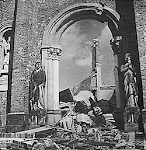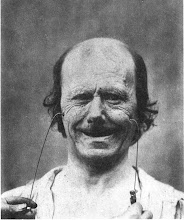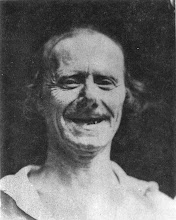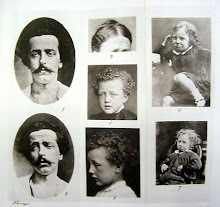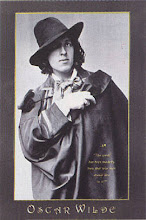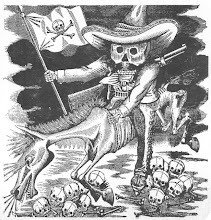"Go West Young Man," is the phrase Horace Greeley famously stole from another editorial. "Read Pascal, Old Man" is what my kid suggests. So I have been trying.
I dutifully hopped on the adult tricycle loaned to me by Jeff (the retired syphilis hunter) and peddled over to the Brownsville Public Library. There, the only Pascal available was volume 30 out of the Great Books publication. So I check it out and I also picked up both volumes of the Syntopicon for browsing.
For the last several days, I have been reading The Provincial Letters. It seemed reasonable to start at the beginning of the book, because I don't know enough about the writings to skip to the good parts. Also, the last third is filled with science and math and equations that I will probably never be able to read. Unfortunately several days of reading and re-reading has taken me only through the first three letters.
Austin sneers at the reading of interpretations, histories, biographies, etc. from the classic writers, but with hard guys, I tend to read around them a while before I can get up the courage to actually read the book. Sometimes I only read around them and never get to the book.
In the case of Pascal, except for the two page "Biographical Note" at the beginning of the Volume 30, I haven't read anything. Usually, trying to get ready to read something this intimidating, I would first read a biography of Pascal, then I would read a history of 17th Century France, then I would read a history of mathematicians and then I would pick up a "the Best of" type of collection that has summaries and explanations surrounding snippets of original work. The down side to this approach is that I may never actually read anything by the author I am reading about so I don't get a chance to see if I agree with any of the critiques. For instance, I once read a good biography of James Joyce. I still have both Ulysses and Finnegans Wake knocking around in the house, unread.
For what very little it may be worth, this is what I have gleaned from the first three Provincial Letters: Pascal was attracted to a form of French Catholicism called Jansenism. A theologian for the Jansenists named M. Arnauld was "brought before the Sorbonne" which seems to mean was tried in a court that decided correct theology. The Sorbonne must have been large because 71 doctors tried to defend him and "on the other side" eighty secular doctors and some forty mendicant friars condemned him.
Pascal came to the rescue with these Provincial letters. The orthodox view was promoted by the Jesuits and this was that every person had "sufficient grace" given to him by God to obey the divine commandments. The Jansenists said, maybe so, every person has sufficient grace, but not every person was given by God the "efficacious grace," so they couldn't actually obey the divine commandments by putting this sufficient grace into action.
The Jesuits accused the Jansenists of believing like Protestants and in particular, Calvinists, that God had given this efficacious grace only to a chosen few. Then there were fence straddlers who agreed with the Jansenists, but wanted to stay on the right side of the argument politically who said, "Sufficient grace is given to all, but not every one has the type of grace that will suffice."
Pascal notes that the choices given are being censured as a Jansenist, being a heretic or being a blockhead and offending against reason.
Pascal has one of his characters argue that silence is the safest position. If you cannot remain silent, the next safest position is being a blockhead.
I'm sure there is a moral to this story, a punch-line to this joke, a crisis to be weathered, a lesson to be learned. If I get to the end and figure it out, I'll let you know.

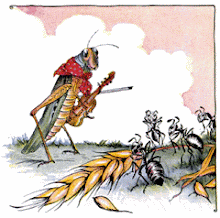













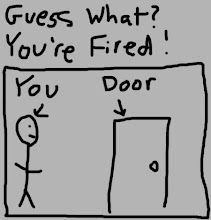










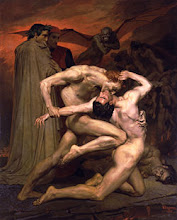_-_Dante_And_Virgil_In_Hell_(1850).jpg)



